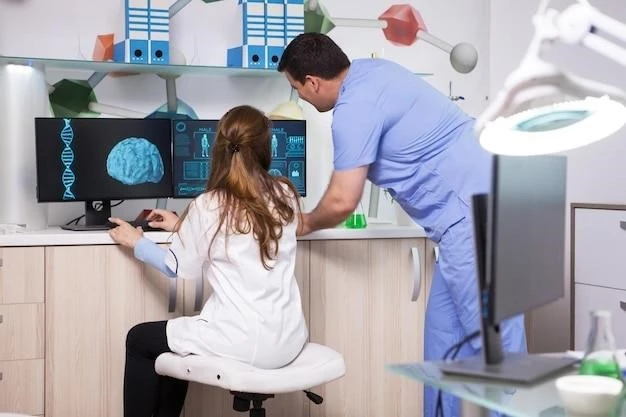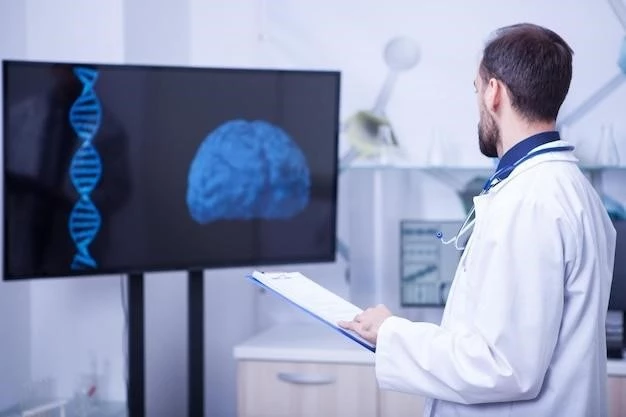Recognizing symptoms like headaches, confusion, seizures, and neurological deficits is crucial to prompt diagnosis and treatment.
Common Symptoms
Recognizing symptoms of central nervous system protozoal infections is crucial for timely intervention; Common symptoms include severe headaches, neck stiffness, confusion, seizures, and focal neurological deficits like weakness or sensory changes. These infections can present with altered mental status, vision problems, and in severe cases, coma. If you experience any of these symptoms, seek medical attention promptly for proper evaluation, diagnosis, and treatment to improve outcomes.
Accurate diagnosis of CNS protozoal infections involves various tests like imaging studies, cerebrospinal fluid analysis, and serologic tests.
Diagnosis
Diagnosing central nervous system protozoal infections is a complex process that often requires a combination of diagnostic tools. Imaging studies such as CT scans or MRIs can help identify brain lesions or abnormalities. Analysis of cerebrospinal fluid through lumbar puncture can provide valuable information about the presence of the infection. Additionally, serologic tests may be conducted to detect specific antibodies related to the causative protozoa. It is essential to consult with healthcare professionals specialized in infectious diseases or neurology for accurate diagnosis and develop a treatment plan tailored to your condition.
Treatment
Effective treatment of central nervous system protozoal infections involves antiparasitic medications such as antiprotozoal drugs to target the causative agent. Depending on the specific protozoa involved, medications like antimalarials or antiprotozoal agents may be prescribed. Treatment may also include managing symptoms such as seizures or inflammation of the brain. In severe cases, hospitalization and intravenous administration of medications might be necessary. It is crucial to adhere to the prescribed treatment regimen and follow-up appointments to monitor response to treatment and ensure successful recovery. Consult your healthcare provider for personalized treatment recommendations.
Protect yourself by avoiding mosquito bites, practicing safe food and water habits, and staying informed about travel to endemic regions.
Key Prevention Measures
Preventing central nervous system protozoal infections involves taking proactive steps to reduce the risk of exposure. Avoiding mosquito bites through the use of insect repellent and bed nets can help prevent diseases like malaria. Practicing safe food and water habits, such as drinking clean water and properly cooking food, can minimize the risk of infections like toxoplasmosis. Stay informed about travel to endemic regions and consult with healthcare providers regarding appropriate preventive measures, including vaccinations and prophylactic medications. By adopting these preventive strategies, you can safeguard yourself against central nervous system protozoal infections.
Understand the prevalence and distribution of CNS protozoal infections to identify high-risk areas and target preventive interventions effectively.
Incidence Rates
Monitoring the incidence rates of central nervous system (CNS) protozoal infections provides vital information on the burden of these diseases within populations. Understanding the prevalence and distribution of CNS protozoal infections helps public health authorities and healthcare providers identify high-risk areas, implement targeted interventions, and allocate resources efficiently. By tracking incidence rates over time, researchers can assess the effectiveness of prevention and control strategies, leading to improved outcomes and reduced impact on public health. Stay informed about the epidemiology of CNS protozoal infections to support efforts in combating these diseases at a population level.
Addressing the impact of CNS protozoal infections on public health is crucial to prevent outbreaks and improve overall community well-being.
Public Health Concerns
Central nervous system (CNS) protozoal infections pose significant public health concerns due to their potential for high morbidity and mortality rates. These infections can lead to serious neurological complications, impacting individuals’ quality of life and straining healthcare systems. Public health efforts focused on disease surveillance, early detection, and effective treatment are essential to prevent outbreaks and minimize the burden on the population; Promoting awareness, implementing preventive measures, and investing in research to develop innovative strategies are key steps in addressing the public health challenges posed by CNS protozoal infections. Collaboration between public health agencies, healthcare providers, and communities is pivotal in mitigating the impact of these infections and safeguarding public health.
Stay informed about the latest advancements in research on central nervous system protozoal infections to understand emerging treatments and diagnostic approaches.
Current Research Focus
Research on central nervous system (CNS) protozoal infections is rapidly evolving, with current efforts focused on enhancing diagnostic tools, exploring new treatment modalities, and understanding the mechanisms of infection and disease progression. Scientists are studying vaccine development strategies to prevent these infections and investigating the role of host immune response in combating protozoal pathogens. Novel drug discovery initiatives and advancements in genetic sequencing have opened new avenues for tailored therapies and personalized medicine approaches. By staying updated on the latest research findings, individuals, healthcare providers, and policymakers can contribute to the collective efforts in combating CNS protozoal infections and improving patient outcomes.
Explore innovative approaches in the management of central nervous system protozoal infections for improved patient care outcomes and recovery.
Advancements in Treatment
Recent advancements in the treatment of central nervous system (CNS) protozoal infections have introduced innovative therapeutic strategies to combat these complex diseases effectively. From targeted antiparasitic medications to multidisciplinary approaches involving neurologists, infectious disease specialists, and supportive care teams, the management of CNS protozoal infections is evolving to provide personalized and comprehensive care. Improved understanding of parasite biology and host responses is driving the development of novel treatment modalities, including immunotherapies and combination drug regimens. By leveraging these advancements, healthcare providers can optimize treatment outcomes, enhance patient quality of life, and contribute to reducing the burden of CNS protozoal infections on individuals and communities.
Explore real-case scenarios of central nervous system protozoal infections to understand diagnostic challenges and treatment complexities.

Real-life Examples
Examining case studies of central nervous system protozoal infections offers valuable insights into the diverse clinical presentations and management approaches encountered in real-world settings. These examples shed light on the challenges healthcare professionals face in diagnosing these infections, selecting appropriate treatment strategies, and monitoring patient outcomes. By analyzing real-life scenarios, healthcare providers can enhance their decision-making skills, refine diagnostic processes, and tailor treatment regimens based on individual patient needs. Learning from these cases aids in improving overall patient care and contributes to the advancement of clinical practices in managing central nervous system protozoal infections.
